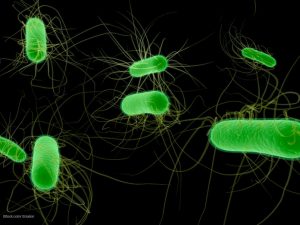Researchers from the department of animal science at Texas A&M Univeristy and Texas A&M AgriLife Research are focusing on ways to inhibit the growth of STEC E. coli on beef. The Shiga-toxin E. coli bacteria cause 230,000 cases of illness every year in the U.S., when beef is not handled properly and is not cooked to a minimum temperature of 160°F.
 That beef, when it is not cooked properly or deliberately undercooked, also causes more than 2,000 cases of hemolytic uremic syndrome (HUS) every year, a life-threatening complication of a STEC infection that can lead to kidney failure and death. Such is the case with the ongoing E. coli O157:H7 outbreak in Michigan, Ohio, Massachusetts, and Missouri, where undercooked hamburger is linked with the illness of 11 people, six of whom have been hospitalized. That outbreak has triggered the recall of 900 tons of ground beef products made by Wolverine Packing Company.
That beef, when it is not cooked properly or deliberately undercooked, also causes more than 2,000 cases of hemolytic uremic syndrome (HUS) every year, a life-threatening complication of a STEC infection that can lead to kidney failure and death. Such is the case with the ongoing E. coli O157:H7 outbreak in Michigan, Ohio, Massachusetts, and Missouri, where undercooked hamburger is linked with the illness of 11 people, six of whom have been hospitalized. That outbreak has triggered the recall of 900 tons of ground beef products made by Wolverine Packing Company.
The research is based on data from the CDC and is focusing on the use of fermentative microorganisms to produce natural antimicrobial compounds that inhibit the growth of STEC bacteria. Lactic acid is made by the helpful bacteria, which kills the E. coli bacteria.
Researchers are also looking at essential plant oils such as clove and oregano to inhibit the growth of STEC on ground beef. Those oils are considered safe by the government, and may be very helpful during beef transportation and at the retail level.
The scientists are going to present their findings at the 2014 Governor’s Conference/STEC CAP on May 27 – 29, 2014. The research, along with research at 14 other universities, is funded by a five year, $25 million grant from the USDA.




